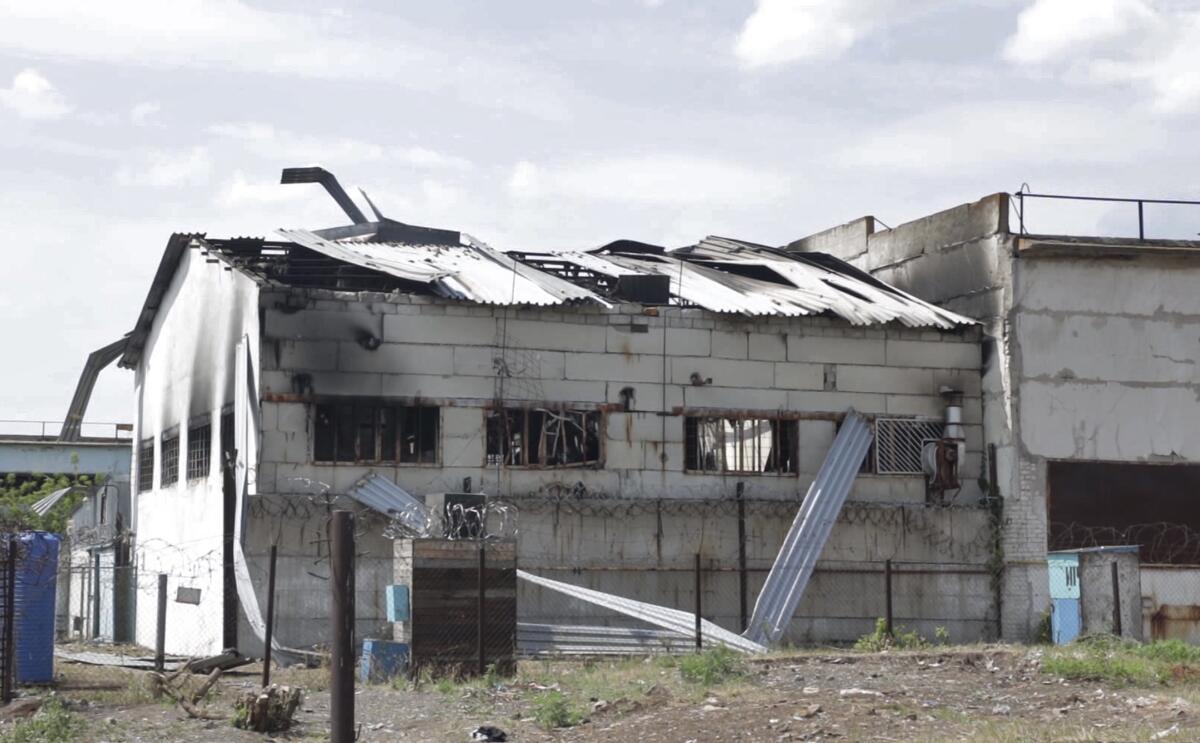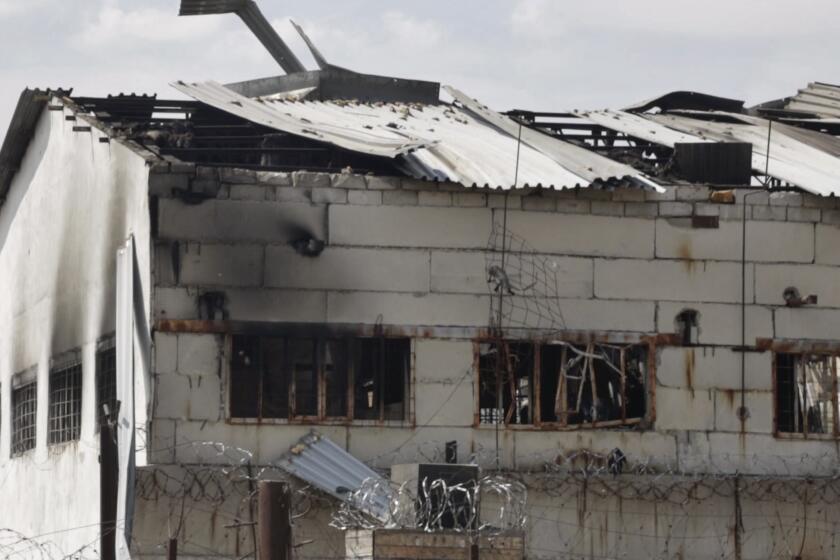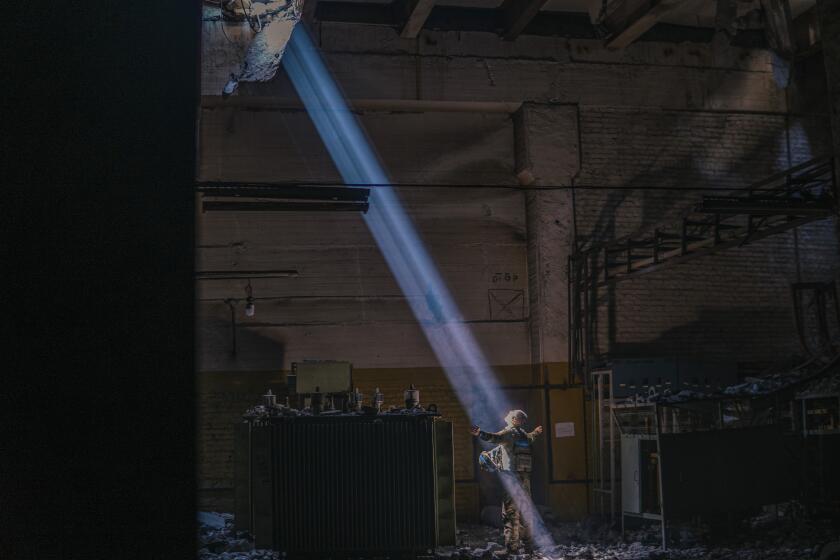Russia is trying to fabricate evidence in Ukrainian POW deaths, U.S. says

- Share via
WASHINGTON — U.S. officials believe Russia is working to fabricate evidence concerning last week’s deadly strike on a prison housing Ukrainian POWs in a separatist region of eastern Ukraine.
U.S. intelligence officials have determined that Russia is looking to plant false evidence to make it appear that Ukrainian forces were responsible for the attack Friday on Olenivka prison that left 53 dead and dozens more wounded, a U.S. official familiar with the intelligence finding told the Associated Press on Wednesday.
Separately, a Western government official, who briefed reporters on condition of anonymity, said explosives experts who have reviewed photos of the prison released by the Russians after the incident have determined that the destruction probably wasn’t caused by “a high-explosive strike from the outside” and that it was “much more likely to be incendiary and from inside the location.”
Russia has claimed that Ukraine’s military used U.S.-supplied rocket launchers to strike the prison in Olenivka, a settlement controlled by the self-proclaimed, Moscow-backed breakaway Donetsk People’s Republic.
The Ukrainian military denied making any rocket or artillery strikes on Olenivka. The intelligence arm of the Ukrainian Defense Ministry said in a statement Wednesday to have evidence that local Kremlin-backed separatists colluded with the Russian FSB, the KGB’s main successor agency, and mercenary group Wagner to mine the barrack before “using a flammable substance, which led to the rapid spread of fire in the room.”
The U.S. official, who was not authorized to comment publicly and spoke on the condition of anonymity, said the classified intelligence — which was recently downgraded — shows that Russian officials might even plant ammunition from medium-range High Mobility Artillery Rocket Systems, or HIMARS, as evidence that the systems provided by the U.S. to Ukraine were used in the attack.
Ukrainian and Russian officials blame each other for the deaths of dozens of Ukrainian prisoners of war in a separatist-controlled area.
Russia is expected to take the action as it anticipates independent investigators and journalists eventually getting access to Olenivka, the official added.
Ukraine has effectively used HIMARS launchers, which fire medium-range rockets and can be quickly moved before Russia can target them with return fire, and have been seeking more launchers from the U.S.
Kremlin spokesman Dmitry Peskov on Thursday angrily dismissed the U.S. officials’ claims about Russia fabricating the evidence.
“It has been absolutely proven and it’s absolutely obvious what happened in Olenivka,” Peskov said Thursday in a conference call with reporters.
“Ukrainian prisoners of war were killed by the Ukrainian military. Ukraine killed its soldiers who were in captivity, and many others were wounded. There is ... evidence and there is nothing to hide,” Peskov added.
Russia’s Supreme Court has declared Ukraine’s Azov regiment a terrorist organization.
United Nations Secretary-General António Guterres said he was appointing a fact-finding mission in response to requests from Russia and Ukraine to investigate the killings at the prison. Guterres told reporters he doesn’t have the authority to conduct criminal investigations but does have the power to launch fact-finding missions. He said the terms of reference for a mission to Ukraine were being prepared and will be sent to Moscow and Kyiv for approval.
The Ukrainian prisoners of war at the Donetsk prison included troops captured during the fall of Mariupol. They spent months holed up with civilians at the giant Azovstal steel mill in the southern port city. Their resistance during a relentless Russian bombardment became a symbol of Ukrainian defiance against Russia’s aggression.
More than 2,400 soldiers from the Azov regiment of the Ukrainian National Guard and other military units surrendered under orders from Ukraine’s military in May.
Breaking News
Get breaking news, investigations, analysis and more signature journalism from the Los Angeles Times in your inbox.
You may occasionally receive promotional content from the Los Angeles Times.
Scores of Ukrainian soldiers have been taken to prisons in Russian-controlled areas. Some have returned to Ukraine as part of prisoner exchanges with Russia, but other families have no idea whether their loved ones are still alive or if they will ever come home.
U.S. and British officials, before the war and in its early stages, repeatedly went public with what they said were Russian plans to stage fake videos and events that the Kremlin would blame on Ukraine but in fact were perpetrated by Russia.
More to Read
Sign up for Essential California
The most important California stories and recommendations in your inbox every morning.
You may occasionally receive promotional content from the Los Angeles Times.












